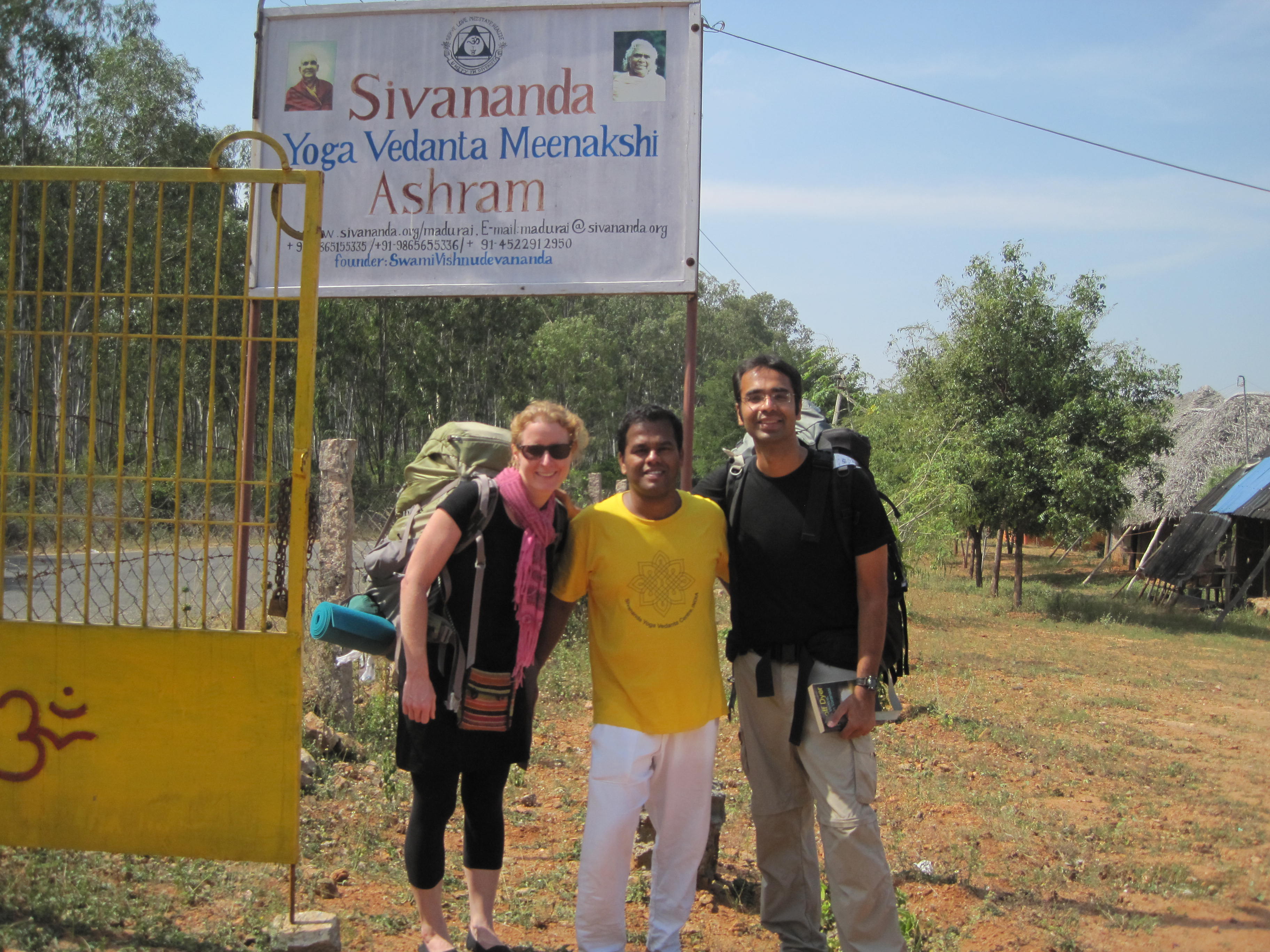A couple of years ago, Kerry and I went to a resort in the Dominican Republic for a vacation: all-inclusive, swimming pools, beach views, room service etc.
Sounds lovely, right?
Actually, no. It was entirely forgettable. We’d never do it again because we didn’t feel a thing. Admittedly, we were six months pregnant with Leela then so we’d bought into the cultural expectation of taking a “relaxing” vacation. But I question the relaxation that comes from sitting on a beach and stuffing yourself with food and drink. Does your mind truly take a break from its habitual patterns and maze of desires and obsessions and self-loathing and regrets? Vacation that doesn’t dissolve your sense of self completely and lead to growth and an evolution of a newer self is just another form of materialism. Instead of stuff, you’re acquiring a passport stamp and some new sights. Stretch yourself to breaking point. Feel things, don’t just see them. Else it’s not a vacation from your life, it’s just a physical escape. And that’s never a good thing because why create a life you need to physically escape from, right?
A few vacations that I highly recommend instead:
Short (<1 week): Hiking the Himalayas, Kilimanjaro, and Macchu Picchu. Hiking cost, including food and camping: Himalayas=$400; Kilimanjaro=$900; Macchu Picchu Jungle Inca Trail=$375.
None of them require any technical climbing skills or special training at all.
Medium (1-2 weeks): 10 day silent Vipassana meditation retreat. Free.
Long (4-6 weeks): Backpacking from Europe to India by road living in hostels and traveling by the cheapest modes of transport possible—buses, ferries, walking. <$100/day.
Sabbatical Length (6-8 weeks): Living in an artist residency working on your art. Try the lovely Obras in Portugal or the Aranya Artist Retreat in Goa where I wrote The Yoga of Max’s Discontent. $25/day.
There is one common principle across all of them.
I’ve been so immersed in the activity I was doing that I dissolved completely in it. Hiking, meditating, backpacking, writing, whatever—there was no distance left between the observer and the observed. I wasn’t checking things of my travel to-do list, passively seeing the Eiffel Tower or the Colosseum or yet another cathedral with the same chattering mind I brought to it. I became the vacation as it were, so deeply immersed and moved by it that I returned a different person than the one that went.
If you’re in the middle of planning your next vacation, do ask yourself:
a. Will it push you to a physical breaking point?
On the fifth day of Kilimanjaro, you start hiking at midnight in freezing wind at an almost vertical ascent and keep hiking non-stop for hours until you summit, then turn back and hike down well below Base Camp. That’s sixteen or seventeen hours of continuous walking on an unforgiving terrain. Nothing exists. One step, then another. The moment here, the journey now. That’s it. Every other concern disappears. Will my novel become a bestseller? Should I quit my job? Why did X say this to me? Nothing matters. You’re dying. Everything gets in perspective and deep within you, a realization emerges without you even knowing it. If I can do this, I can handle every trifling white collar problem. Now, that’s a vacation.
b. Does you stomach knot a little from the uncertainty?
You don’t go to a Vipassana meditation retreat or yoga teacher’s training all calm and zen. Your mind is screaming. Can I spend 10 days in silence? Are there really no meals after noon? Can I sleep in a dorm room of snoring strangers for one month ten years after college? If my gut doesn’t tighten with a little fear and a little uncertainty in anticipation of a vacation, I don’t go anymore. Because I know I’m not pushing the boundaries of experience and I’ll come back with the same tired ideas I’m leaving with. Lest it be all fear though, a good system we’ve come up with to truly look forward to vacations is to intersperse experiences that push us with experiences of complete surrender. Break, then re-build. Hike the Himalayas, then rest in a quiet guesthouse in the mountains. Monastic yoga teacher’s training, then chatter with friends. The thesis and the anti-thesis, in the middle emerges the answer.
c. Are you practicing willful poverty?
Stoicism advocates living at a fraction of what you can afford ever so often so you can deeply internalize how little money you need to feed the soul. I can’t think of a better venue than vacations to practice this principle. Don’t go from white collar comfort to white collar comfort. Strip off the dross of consumption and noise and hike, walk, travel by road, live in hostels and on friend’s couches. And you’ll come closer to what matters. Slowly, you’ll stop caving into the pressure of seeing yet another cathedral in Belgium and taking pictures of a fifteenth century castle in Germany and partying in Monaco when your heart wants to freeze in a tent in the mountains. Or to just be. With no list to check-off, no places to see. To use some tired metaphors, you’re the caterpillar who’s becoming a butterfly, the seagull about to take flight. Old habits are dissolving. You crave deeper, more transcendental experiences. Succumb to it. Don’t “relax” at a beach.
If the answer to any of the above is yes, then you’re taking a true vacation. Else just drop the kids off with the grandparents and go to a hotel room in your city for a couple of days. That’s a good escape. But don’t mistake it for a vacation. Keep your travel transcendental—and do let us know where you’re going. We may join you!


















9 Comments